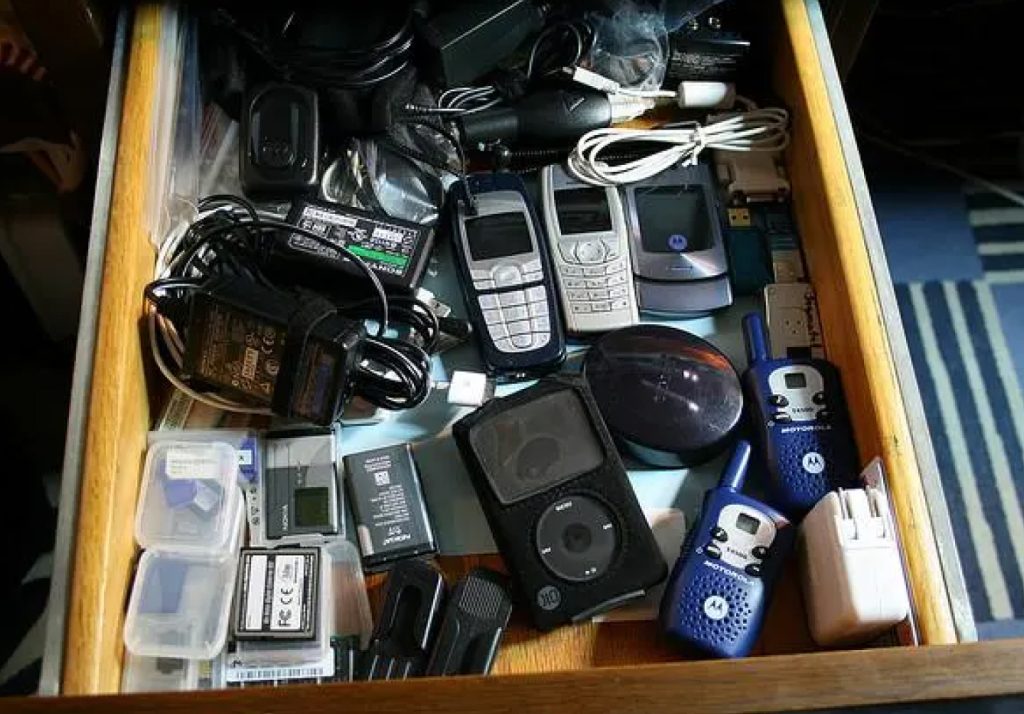
We all have them—those old mobile phones stashed away in a drawer, gathering dust. Maybe it’s your first smartphone from years ago, or that trusty backup phone you’ve kept for emergencies that never came. Or maybe you held onto them with the thought, “I might need this one day.” But here’s the thing: every old phone sitting around unused isn’t just junk; it’s full of valuable materials, and recycling it properly can make a real difference.
In this blog, we’ll explore why recycling old phones matters more than you might think, how you can recycle them responsibly, what could happen if you don’t, and how easy it is to take the first step. We’ll also answer common questions and guide you on the best options available. Let’s dive in!
Why should you recycle old mobile phones?
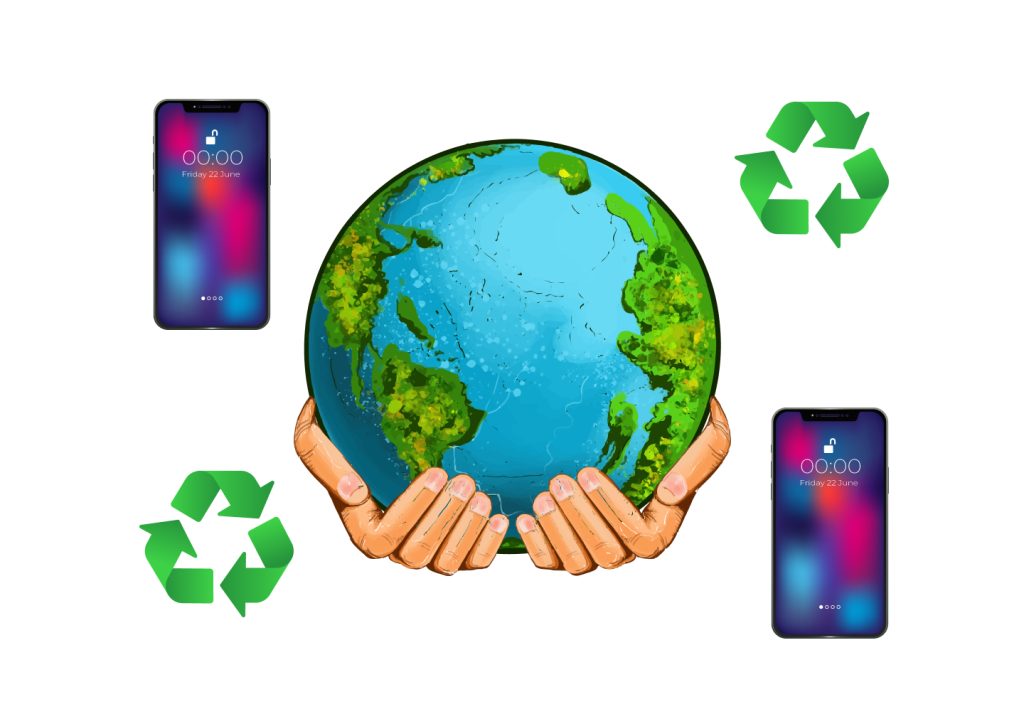
Recycling isn’t just about getting rid of clutter—it’s about doing the right thing for the planet and future generations. Every phone you recycle helps reduce e-waste and conserve resources, but that’s only scratching the surface. Let’s break down the biggest reasons why recycling your old mobile phone is essential:
1. Protect the Environment
Mobile phones contain dangerous chemicals like lead, mercury, cadmium, and brominated flame retardants. If you throw your phone in the trash and it ends up in a landfill, these toxic substances can leak into the soil and water. Over time, this contamination can harm ecosystems and even enter the food chain, impacting both animals and humans. Recycling prevents this toxic leakage from occurring.
2. Conserve Natural Resources
Did you know that your phone contains valuable metals like gold, silver, palladium, and copper? Extracting these metals from the earth is resource-intensive and environmentally damaging. For example, mining gold requires tons of rock and gallons of water. When you recycle old phones, these precious materials are recovered, reducing the need for mining and conserving natural resources.
3. Reduce E-Waste
E-waste—short for electronic waste—is the fastest-growing type of waste globally. Millions of phones are discarded every year, and only a small percentage gets recycled. Recycling helps keep these devices out of landfills, where they would otherwise accumulate and contribute to the growing e-waste crisis.
4. Promote a Circular Economy
Recycling promotes sustainability by supporting a circular economy. Instead of dumping phones and mining new materials, companies can reuse components from recycled devices. This helps lower the carbon footprint of new products, making electronics more sustainable.
How to recycle your old mobile phones
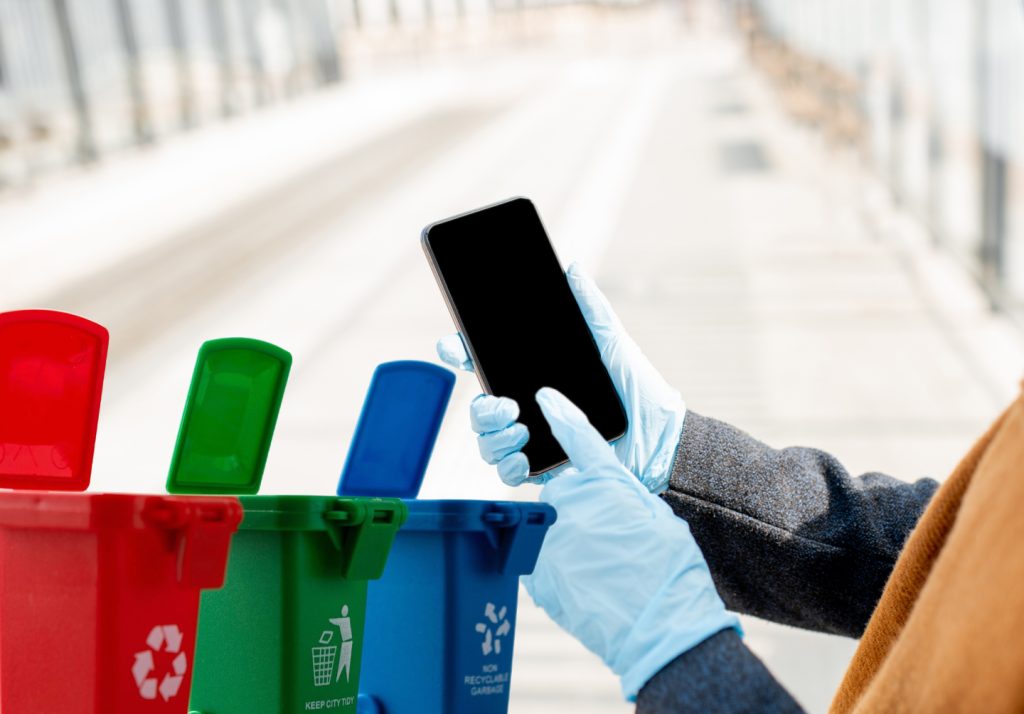
Recycling your phone is easier than ever, and there are several ways to do it without any hassle. Below are some of the best methods available, each offering unique benefits:
1. Take-Back Programs from Manufacturers and Retailers
Many major phone manufacturers and retailers now offer take-back or trade-in programs. Brands like Apple, Samsung, and Google will take back old phones—even broken ones—and either recycle them or refurbish them. Apple, for example, offers trade-in credits that you can use toward a new purchase. Some retailers also offer e-waste collection points, making it convenient to drop off your phone.
Check if your carrier offers trade-in deals when you upgrade your plan. This way, you not only recycle but also get value for your old device!
2. Donate Your Phone to Charity
If your old phone is still functional, consider donating it to a charity. Organizations like Cell Phones for Soldiers or Hope Phones refurbish donated phones and provide them to those in need, including soldiers and underserved communities. Your phone could connect someone to essential resources they otherwise wouldn’t have access to.
3. Use E-Waste Recycling Centers
Your city likely has e-waste recycling centers where you can safely drop off old phones and other electronic devices. These centers ensure that the phones are dismantled and recycled in an environmentally friendly way. Some centers even offer pick-up services if you have multiple devices to recycle.
Call ahead to confirm if the center accepts phones and batteries, as some recycling centers have restrictions.
4. Sell or Swap Your Old Phone
If your phone is still in decent condition, selling it online could be a great option. Platforms like eBay, Facebook Marketplace, or Swappa let you find buyers quickly. Alternatively, some companies offer device swap programs, allowing you to exchange your old phone for discounts on new ones.
What happens if you don’t recycle your old mobile phones?

You may think holding onto your old mobile phones doesn’t do any harm, but that’s not the case. Letting them pile up—or worse, tossing them in the trash—can lead to several problems down the road:
1. Environmental Hazards
Throwing phones in the trash means they often end up in landfills, where they slowly break down. Modern smartphones contain hazardous materials like lead, mercury, cadmium, and arsenic. When left to deteriorate in a landfill, these toxic chemicals can seep into the soil and groundwater, polluting drinking water supplies and endangering ecosystems. Over time, this contamination spreads and can harm plants, animals, and even human populations.
These toxic substances don’t just affect the environment near the landfill—they can travel through waterways to rivers, lakes, and oceans, affecting areas far away. For example, lead contamination can have devastating effects on aquatic life, making fish unsafe to eat. If pollutants enter the food chain, they can eventually make their way onto our plates.
2. Missed Opportunities to Recover Valuable Materials
Did you know that every smartphone contains small amounts of gold, silver, copper, and palladium? Mining these precious metals is a resource-intensive process that harms the environment. By not recycling your phone, you’re contributing to the demand for new raw materials, encouraging more mining, which comes with devastating environmental impacts like deforestation, soil erosion, and water contamination.
The crazy thing is that the value of the materials inside old phones really adds up. For example, about 8,000 smartphones contain nearly a pound of gold. It takes an enormous amount of ore to extract that same quantity of gold from the earth. The more old phones that sit forgotten in drawers, the more unnecessary mining takes place—causing irreversible damage to the environment and contributing to the depletion of natural resources.
3. Battery Risks
Your phone’s battery isn’t just another component—it’s potentially dangerous. Lithium-ion batteries, which are found in most smartphones, are known to degrade over time. If these batteries aren’t disposed of properly, they can swell, leak toxic chemicals, or even explode. Batteries left in drawers, basements, or garages for years pose a hidden fire hazard, especially when they come into contact with other electronic devices.
There are countless reports of old phone batteries causing fires. In landfills, batteries can be compressed by heavy machinery, triggering thermal runaway—a chemical reaction that leads to intense heat, fire, or even explosions. These fires are difficult to control and release harmful fumes, making them a significant hazard to landfill workers and nearby communities.
What happens to recycled old mobile phones?
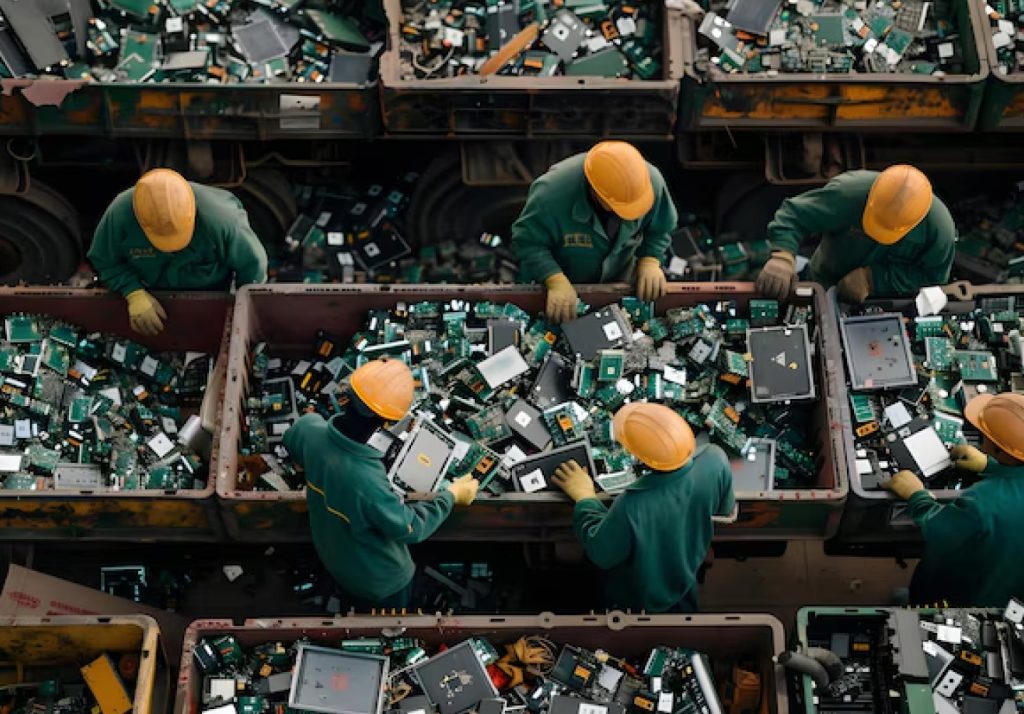
Wondering what happens after you drop off your phone at a recycling center? Here’s a glimpse into the recycling process:
1. Collection and Sorting: The process starts with collection. Recycling centers, retail stores, and phone manufacturers run programs where you can drop off old devices. In some cases, phone carriers also offer trade-in or buyback options, giving you an incentive to recycle. After collection, the phones are sorted based on their brand, model, and condition. Sorting is essential to determine whether a phone can be refurbished or if it needs to be dismantled for parts.
2. Data Wiping: Before anything else happens, all personal data must be removed. Recycling companies follow strict procedures to ensure your privacy is protected. Simply deleting files isn’t enough—data wiping involves performing a complete factory reset and, in some cases, using specialized software to overwrite the data multiple times.
3. Testing and Refurbishment: Not every old phone is destined to be dismantled. Many phones that are still functional—especially those that are only a few years old—are tested for performance issues. If they pass inspection, they are cleaned, repaired, and refurbished for resale in second-hand markets.
Refurbished phones are sold both locally and internationally, often in regions where buying new phones isn’t affordable for most people. This extends the life of the device and helps reduce electronic waste by keeping phones in circulation longer. Some refurbished devices are sold through retail outlets, while others are donated to schools, non-profits, or developing countries, promoting access to technology in underprivileged areas.
4. Component Recovery: For phones that can’t be repaired, the next step is to dismantle them. Skilled workers and automated machines carefully disassemble the devices, extracting parts that are still usable, such as screens, cameras, and charging ports. These components are sold to repair shops or manufacturers, where they are reused in other devices.
Non-functional components are separated by material—circuit boards, batteries, plastics, and metals—so they can be processed individually. The focus here is on recovering valuable materials like gold, silver, copper, palladium, and lithium. This helps reduce the demand for new raw materials and minimizes the need for environmentally destructive mining operations.
5. Material Recycling: Once the valuable components and metals are extracted, they are melted down or chemically processed into raw materials that can be reused to manufacture new products. Gold and copper from circuit boards, for example, are refined and incorporated into new electronic devices, while plastic casings may be recycled into packaging materials or even construction products.
Lithium from batteries is particularly important—it’s reused to create new batteries for electric vehicles and smartphones. By recycling these materials, manufacturers can reduce the environmental impact of mining and limit the depletion of natural resources. Recycling also helps
Is it safe to recycle phones with broken batteries?
Yes, it’s perfectly safe—as long as the recycling center is aware of the situation. Many recycling programs and take-back services specialize in handling phones with damaged or swollen batteries. Batteries are a critical part of the recycling process, but when they’re broken or leaking, they need extra care to avoid fire risks or toxic leaks.
If you notice that your phone’s battery is bulging, leaking fluid, or no longer holds a charge, don’t worry—just make sure to inform the recycler about the issue. Reputable recycling centers follow strict procedures for handling damaged batteries. They use special containers and safety protocols to prevent short circuits or chemical exposure during the process. This ensures that even phones with broken batteries are recycled in an environmentally safe way.
Can I still trade in my phone if it’s several years old?
Absolutely! While newer phones will typically fetch higher trade-in values, many trade-in programs accept older devices as well. The condition and model of the phone will determine how much value you’ll receive—a well-preserved older phone might still earn you decent credit, while more outdated or non-functional phones may have little or no monetary value. However, even if your phone is too old to qualify for trade-in credit, many programs will still recycle it for free.
Some retailers offer special promotions where even older models are accepted for a bonus credit, so it’s worth checking around to see what offers are available. You’d be surprised—vintage or rare phones sometimes have unexpected value in niche markets or collector communities. Regardless of the trade-in amount, recycling your old phone ensures that its valuable components are reused and harmful materials are disposed of properly.
Even if you aren’t looking for cash or credit, trading in your old phone through official channels ensures it will stay out of landfills and contribute to a more sustainable economy.
Can I get cash for my old or broken phone for recycling?
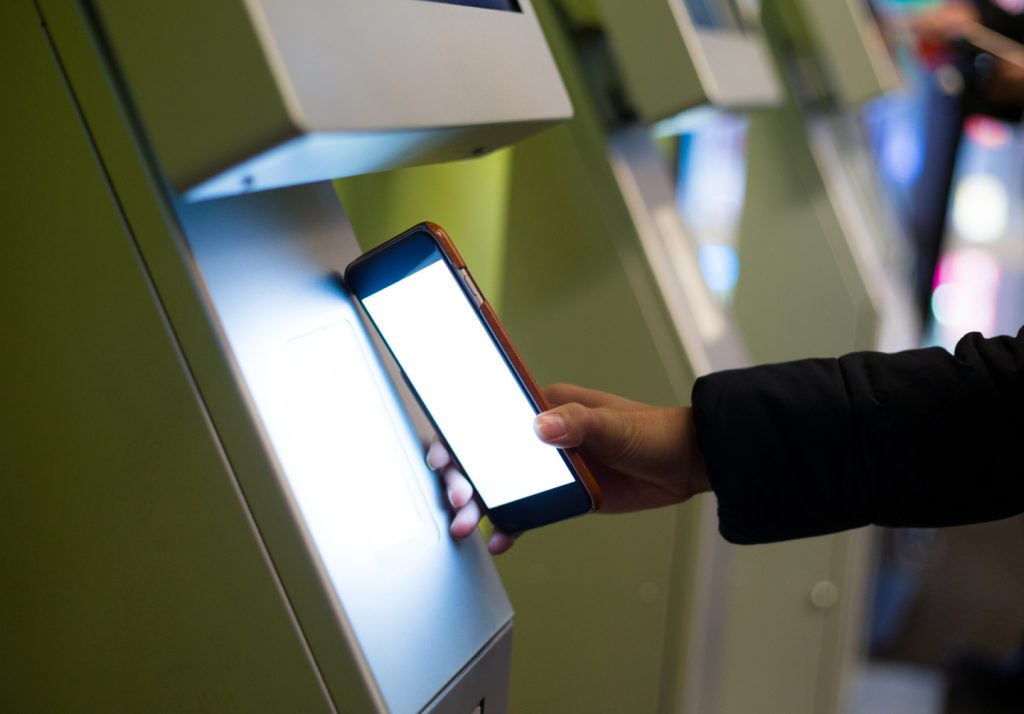
Yes! Depending on your phone’s condition and the program you use, you may receive cash, trade-in credit, or gift cards for recycling your old or broken device. Many phone manufacturers, retailers, and online platforms offer buy-back or trade-in programs to encourage people to recycle responsibly.
Even if your phone isn’t fully functional, it still holds value. Programs like EcoATM, Gazelle, and manufacturer trade-ins (e.g., Apple, Samsung) accept broken phones and offer some cash based on the model, age, and extent of damage. While the payout for broken phones is usually lower, valuable parts like screens, cameras, and processors can still be salvaged and refurbished.
For phones that are too old or too damaged to qualify for cash, many retailers offer store credit instead. In some cases, you can apply the credit toward the purchase of a new device or accessories. Non-working phones can also be recycled for free, and some programs donate parts or refurbished devices to charitable causes, giving your old phone a new purpose.
Making recycling a habit
Recycling old phones shouldn’t just be a one-time effort—it’s a habit worth adopting. As you upgrade to newer models, remember to recycle your old ones instead of letting them collect dust. It’s a small change that makes a massive difference.
Encourage your friends and family to join in too. Every phone recycled reduces e-waste and conserves resources. Plus, it just feels good knowing you’re doing your part for the environment.
Final thoughts
So, what will you do with your old mobile phones? Whether it’s trading them in, donating them to charity, or dropping them off at a recycling center, the important thing is to act. Every phone recycled is a step toward a cleaner, greener planet—and that’s something we can all get behind.
Need help finding the best recycling option for your phone? Reach out to Docalla! We’re here to guide you toward the right choice, so your phone can make a positive impact even after its time is up.